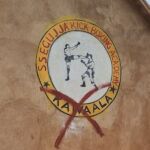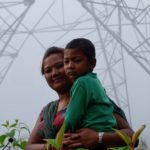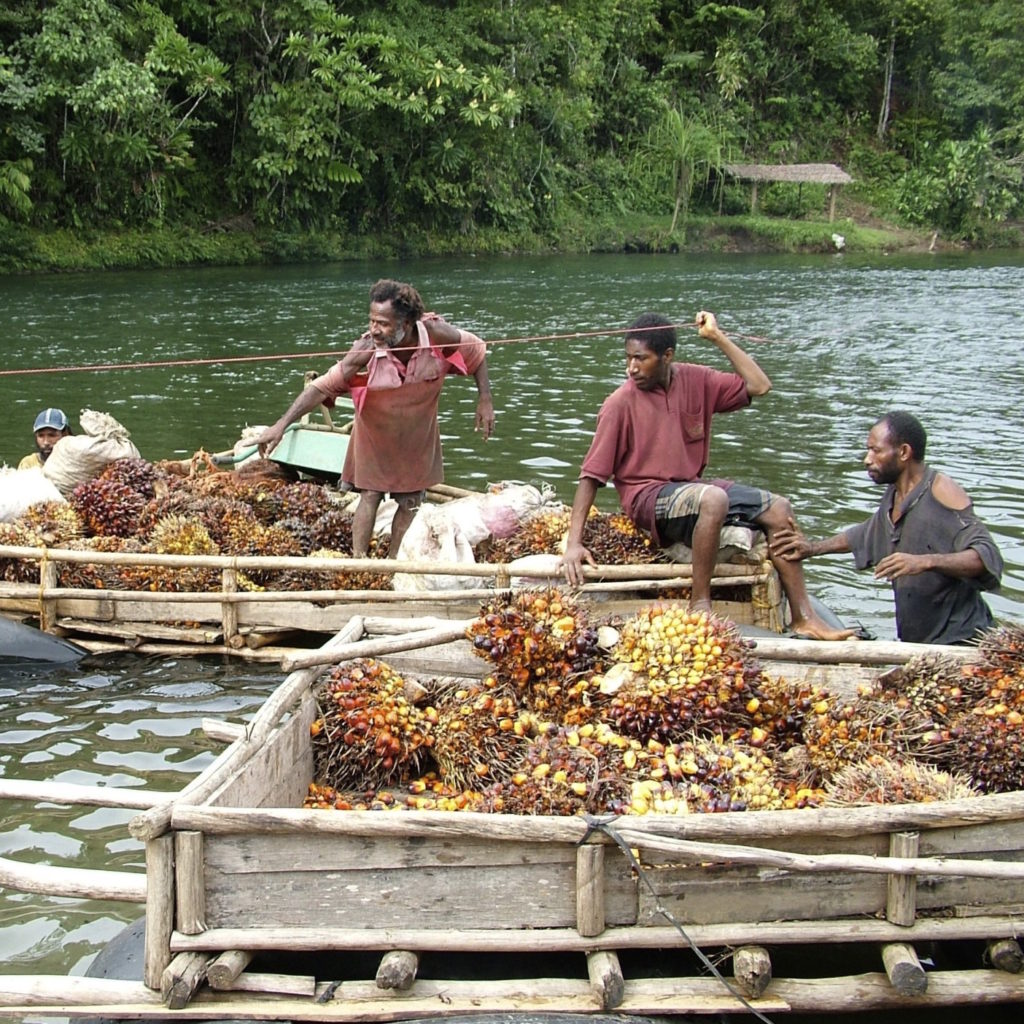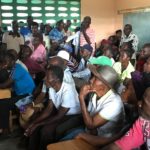World Bank: International Bank for Reconstruction and Development (IBRD) & International Development Association (IDA) | Accountability Mechanism (AM), Dispute Resolution Service (DRS), and Inspection Panel (IP)
-
Overview
Accountability Counsel advocates for the World Bank’s Inspection Panel to be as effective as possible for communities seeking justice for harms caused by Bank projects. In practice, this means that the Inspection Panel must be independent, fair, transparent, predictable, and accessible. As the first accountability office, the creation of the Inspection Panel paved the way for future offices. Accountability Counsel strives to ensure that the Inspection Panel not only retains its best practices but also continues to evolve for the benefit of communities who need to access it.
World Bank: International Bank for Reconstruction and Development (IBRD) & International Development Association (IDA)
Created In: 1944
Headquarters: Washington, D.C., United States
Member Countries: 189 (IBRD) & 173 (IDA)
Largest Shareholder: The United States
Mission: End extreme poverty within a generation and boost shared prosperity.The Accountability Office: The Inspection Panel
Established in: 1993
Functions: Compliance ReviewVisit Our Mechanism Resources Page to learn more about submitting a complaint to the Inspection Panel.The World Bank, one of the very first multilateral global financial institutions, was founded to facilitate reconstruction of European nations after the end of World War II. Since its founding in 1944, the bank has grown to include nearly 200 member nations. Its mission has also expanded to address extreme poverty through grants, loans, financing guarantees, and risk insurance to enable governments of developing countries to make capital improvements at concessionary rates and incentivize private sector investments in those countries.
Some World Bank financed projects, including dams, mines, and oil pipelines, have caused environmental and human rights abuses, including forced displacement of Indigenous people, poisoned rivers, and sexual abuse of women and girls by foreign workers. When this happens, those who most need access to justice often face the greatest barriers to achieving it. Accountability Counsel exists to bridge these barriers for communities and create accountability in global finance resulting in systemic change.
We advocate for accountability offices that are independent, fair, transparent, professional, accessible, and effective tools for justice. For the World Bank, this means ensuring that its accountability office, the Inspection Panel, is an effective forum for communities affected by World Bank projects to raise concerns.
Critical New Changes
The Inspection Panel is at a critical stage in its history. The World Bank recently adopted significant new changes to the Inspection Panel, including that a new Accountability Mechanism will be created that has a dispute resolution function. While these changes should improve access to justice for project affected communities, they have yet to be implemented. To ensure that implementation of the changes results in an even more effective accountability mechanism than before, Accountability Counsel is contributing recommendations based on case experience to the World Bank.
Related Media
-
Our Advocacy
Accountability Counsel is committed to ensuring that the World Bank’s accountability system, is fully effective, and the Bank appropriately responds to accountability mechanism’s work, facilitates remedy for harmed communities, and implements lessons-learned in future projects.
Monitoring the Implementation of Recent Changes to the World Bank’s Accountability System
Recognizing that the World Bank’s independent accountability mechanism, the Inspection Panel, lacked important tools for the effective handling of communities’ complaints, the World Bank Board of Directors finalized sweeping changes to the accountability framework in 2020. Responding to Accountability Counsel’s feedback, the Board gave communities the ability to engage in a dispute resolution process, expanded the timeline for filing complaints, and formalized the Panel’s advisory services, among other changes. The Board created a new overarching structure, the Accountability Mechanism, to house the Panel and the newly created Dispute Resolution Service.
While civil society celebrated the changes to the World Bank’s accountability system, we quickly experienced challenges with the implementation of the new system. Accountability Counsel supported the first case to go through the Dispute Resolution Service (in Uganda), which highlighted the DRS’s challenges with ensuring equitability between parties. Additionally, the new structure has led to perceived competition between the Panel and the DRS, and a perceived conflict of interest for the Accountability Mechanism secretary, who also plays a role in facilitating dispute resolution.
In early 2024, the Board launched an external review to examine the impact of the changes to the WB’s accountability approved in 2020. Accountability Counsel participated in interviews with the external review team and collaborated with partners around the world on responses to the team’s draft report, with recommendations on additional changes to the structure, accessibility, and monitoring. We additionally collaborated with CSOs supporting communities in the first DRS cases to provide recommendations on how the DRS should be improved.
In January 2025, the Board approved structural changes that will separate the Panel and the DRS into two separate entities that each report to the Board. We believe that this change will simplify the complaint process for communities and reduce potential conflicts of interest. We look forward to working with all stakeholders to ensure that this structural change and other changes made based on the external review team’s final report result in more accountability and remedy for harmed communities.
See here for more information on Accountability Counsel’s advocacy to the World Bank.
-
Past Advocacy
Examples of Past Advocacy Campaigns
See here for more information on Accountability Counsel’s advocacy to the World Bank.- 2017-2020 Inspection Panel Toolkit Reform Process
- 2017 Inspection Panel Member Selection Process
- 2015 Ensuring Safeguards Apply to All Bank Activities
- 2014 Demand for Inspection Panel “Pilot Program” Suspension
- 2014 Policy Review
- 2014 Inspection Panel Secretariat Crisis
- 2014 Ensuring Accountability for Indigenous People in Agribusiness Lending
-
Resources
World Bank: International Bank for Reconstruction and Development (IBRD) & International Development Association (IDA)
Created In: 1944
Headquarters: Washington, D.C., United States
Member Countries: 189 (IBRD) & 173 (IDA)
Largest Shareholder: The United States
Mission: End extreme poverty within a generation and boost shared prosperity.The Accountability Office: The Inspection Panel
Established in: 1993
Functions: Compliance Review
Visit the Inspection Panel’s websiteThe mandate of the World Bank Group is poverty alleviation. When people talk about the World Bank, they are usually referring to the International Bank for Reconstruction and Development (IBRD) and International Development Association (IDA). These two institutions provide low-interest loans and grants directly to governments and the public sector for specific projects or initiatives to encourage economic growth.
The current environmental and social policies of the World Bank are known as the “Safeguard Policies,” which govern the addressing of environmental and social issues in project design, implementation and operation, and provide a framework for consultation with communities and for public disclosure. In August 2016, the World Bank adopted a new set of environment and social policies called the Environmental and Social Framework (ESF). As of 1 October, 2018, the ESF applies to all new World Bank investment project financing. With existing projects continuing to apply the Safeguard Policies, the two systems will run in parallel for an estimated seven years.
The Accountability Office
The Inspection Panel assesses allegations of harm to people or the environment and reviews whether the bank followed its policies and procedures. The Inspection Panel may only investigate projects financed by the public sector branches of the World Bank Group: IBRD and IDA.
The Inspection Panel’s mission is to conduct compliance investigations regarding whether the bank complied with its own policies and procedures. Because the World Bank argues it is immune from being held accountable in courts around the world, the Inspection Panel remains the only formal way for people harmed by the World Bank to hold this institution accountable.
Since its inception, the Panel’s independence has been challenged by those who would prefer that the bank operate with impunity, as it did from its founding after World War II up until 1994. We are working to ensure that the Inspection Panel stays independent, improves its effectiveness, and remains a robust tool for communities to seek accountability for bank operations.
The Panel receives requests for inspection directly from people harmed, or who believe they are likely to be harmed, by World Bank projects or programs. Requests for inspection should describe the harm or expected harm to project-affected people or the environment as a result of the World Bank’s failure to comply with its own policies or procedures.
Submit a complaint to the World Bank Inspection Panel if:
- You are part of a group of two or more people (or their representative) who live in an area affected by a World Bank-financed project
- You’ve been harmed or are likely to be harmed by a project financed by the bank’s public-sector institutions – IBRD or IDA
- The harm has been or will be caused by the bank’s failure to fully comply with its own operational policies and procedures
- You have already attempted to resolve the issue with bank management
- The bank loan is less than 95 percent disbursed
If your complaint is eligible, the Panel will investigate the bank’s compliance and issue a report to the bank’s board. Bank management will respond with an action plan to address any findings in the report of the bank’s non-compliance. In the end, the bank’s board decides what action the bank will take in relation to the project.
For more information, see our brochure on the Inspection Panel (with SOMO), our Accountability Resource Guide, or visit the Inspection Panel’s website.
-
Documents
Institutional Documents
Environmental and Social Framework
Resolution Establishing the Panel
1999 Clarification of the Second Review
2020 Board Report and Recommendations on Panel Toolkit Reforms
2020 Inspection Panel Resolution
2020 Accountability Mechanism Resolution
2021 Interim Operating Procedures of the Dispute Resolution Service
2022 Inspection Panel Operating Procedures
2022 Accountability Mechanism Procedures
2022 Internal Protocols Between Accountability Mechanism and Inspection Panel
Key Documents by Release Date
Oct 2023 – Accountability Counsel joined The Reality of Aid Network and other civil society organizations to demand that the World Bank Group rethink the direction of its evolution because the current plan has many shortcomings, including inadequate accountability and transparency mechanisms.
Dec 2022 – The Inspection Panel and the Accountability Mechanism issued updated procedures.
Sept 2020 – The World Bank Group’s Board issued a new resolution for the Inspection Panel and a resolution for the new World Bank Accountability Mechanism.
Mar 2020 – The World Bank Group’s Board approved significant changes to the Bank’s Accountability Framework, including the creation of a new Accountability Mechanism, the inclusion of a new dispute resolution function, and the decision that complaints would be eligible for 15 months after the conclusion of a project.
Jan 2020 – Accountability Counsel and partners renewed calls for transparency and consultation to the Board.
Dec 2019 – Accountability Counsel and partners submitted a letter to the CODE chairperson to push for public disclosure of CODE’s recommendations before any structural changes were approved.
Jan 2019 – Accountability Counsel, and 66 global partners, submitted a joint statement to The World Bank’s Board of Directors, expressing disappointment that three important measures were not approved in the initial review of the Inspection Panel’s toolkit.
Oct 2018 – The World Bank’s Board of Directors approved some changes to the Inspection Panel’s toolkit, including: (1) a formal recognition of the Panel’s advisory role; (2) a clarification that the Panel may review complaints related to projects financed through Bank-Executed Trust Funds; (3) express permission for the Panel to coordinate with accountability mechanisms of co-financiers to process complaints more effectively and efficiently; and (4) an update to procedures to allow the Panel to share its investigation reports with communities ahead of board consideration.
Sep 2018 – Accountability Counsel submitted joint comments to the working group of the World Bank Board’s Committee on Development Effectiveness (CODE) on the review of the Inspection Panel’s toolkit. Our comments addressed seven issues flagged by the bank’s notice, including advisory services and monitoring the implementation of management action plans after compliance review investigations.
Aug 2017 – The World Bank Board of Executive Directors initiated a review of the Panel’s “toolkit” for operating under the bank’s newly approved Environmental and Social Framework.
Apr 2017 – Accountability Counsel sent a joint letter to the World Bank’s Board of Directors, calling for the participation of external stakeholders, including civil society representatives, in the selection process for a new Inspection Panel member. See a summary of AC’s engagement with the 2017 Inspection Panel Member Selection Process.
Apr 2015 – Accountability Counsel received a response letter from the World Bank to our joint letter calling on the bank to ensure its policies apply to all bank activities.
Mar 2015 – Accountability Counsel led 92 organizations in submitting a letter (also available in French and Spanish) to the World Bank President, calling on the Bank to close policy loopholes and ensure that its safeguards apply to all bank activities. We also demanded that the Bank consult with civil society during its review of relevant policies. See a summary of AC’s campaign to Ensure Safeguards Apply to All Bank Activities.
Aug 2014 – Accountability Counsel, and 20 civil society organizations from around the world, submitted a joint letter to World Bank President Kim and Inspection Panel Chair Eimi Watanabe, requesting suspension of the panel’s “pilot program” that prevents cases from reaching full investigations into social and environmental compliance issues. See a summary of the AC’s Demand for Inspection Panel “Pilot Program” Suspension.
Feb 2014 – Accountability Counsel, and 40 civil society organizations from around the world, sent a joint letter to the Inspection Panel, demanding transparency around any changes to the panel’s secretariat and a commitment to cooling off periods to avoid a conflict of interest. See a summary of the 2014 Inspection Panel Secretariat Crisis.
Feb 2014 – The President of the World Bank also submitted a response to former panel members, briskly discounting their views, and referencing an external review from 2011 that made a recommendation that supports the former panel members’ argument for more independence within the secretariat. The relevant paragraphs of the external review are here.
Jan 2014 – Seven highly respected former members of the Inspection Panel, horrified to learn of the proposed changes, took the unprecedented step of sending this joint letter to the panel accusing the current panel members of undermining the panel’s prized independence and effectiveness. The current panel members’ response, dated January 30, 2014, demonstrated their lack of understanding of even the basics of the panel’s need for independence of its secretariat or an interest in its preservation.
Jan 2014 – Accountability Counsel and other civil society organizations demand changes to the World Bank Inspection Panel’s draft operating procedures. See a summary of the 2014 Policy Review
Sep 2011 – Accountability Counsel submitted P4R comments to the World Bank.
Aug 2010 – Accountability Counsel authored a report, with the support of the Center for International Environmental Law (CIEL), titled “A Call For Reform of World Bank Group Agribusiness Policies and Practice: A Proposal to End Violations of Indigenous and Traditional Peoples’ Rights.”
Related Media
17 Mar 2020 – The World Bank’s New Accountability Mechanism Through a Communities’ Lens, Margaux Day and Gregory Berry, Accountability Counsel
11 Mar 2020 – World Bank finally approves Inspection Panel reforms after 2-year standoff, Sophie Edwards, Devex
13 Dec 2019 – The case for public reforms to the World Bank’s Inspection Panel, Natalie Bridgeman Fields, David Hunter, and Kris Genovese, Devex
3 Oct 2019 – Board decision could signal “vote of no confidence” in Inspection Panel, Bretton Woods Project
14 Jan 2019 – Accountability Counsel Submits Joint Statement to World Bank’s Board of Directors on its Initial Review of the Panel’s Toolkit, Accountability Counsel
1 Nov 2018 – What Jam v. IFC Should Mean to Accountability at the World Bank Group, Kindra Mohr, Accountability Counsel
15 Oct 2018 – Press Release: U.S. Treasury Secretary Mnuchin Calls for Increasing Accountability at the World Bank Group, Accountability Counsel, BIC and CIEL
1 Oct 2018 – Comments on the Review of the Inspection Panel’s ‘Toolkit, Kindra Mohr, Accountability Counsel
1 Jul 2016 – Comments to the World Bank’s Grievance Redress Service, Accountability Counsel
For more coverage of our advocacy, please see our blog and news pages.

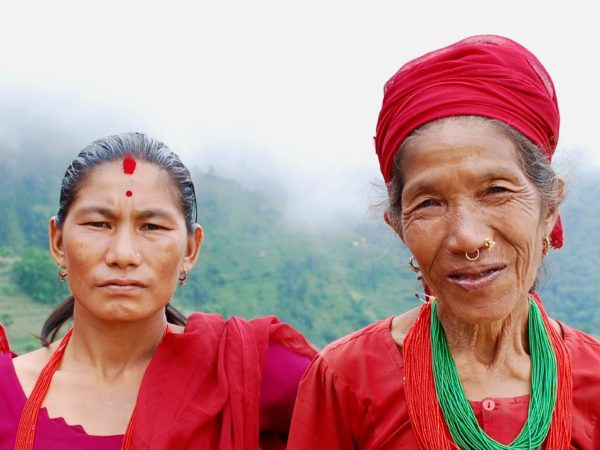
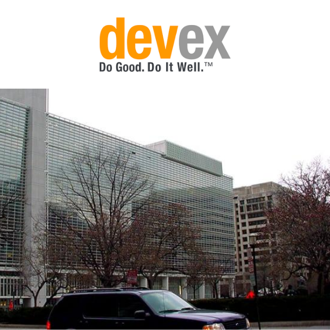
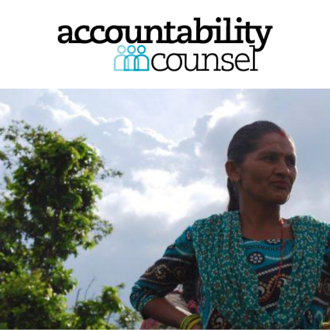
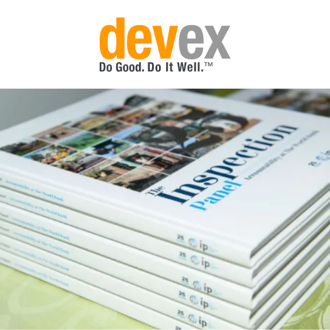
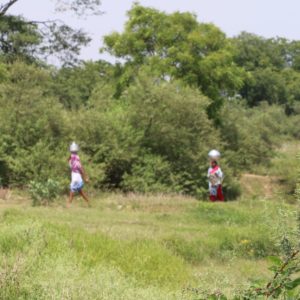 Jharkhand, India
Jharkhand, India